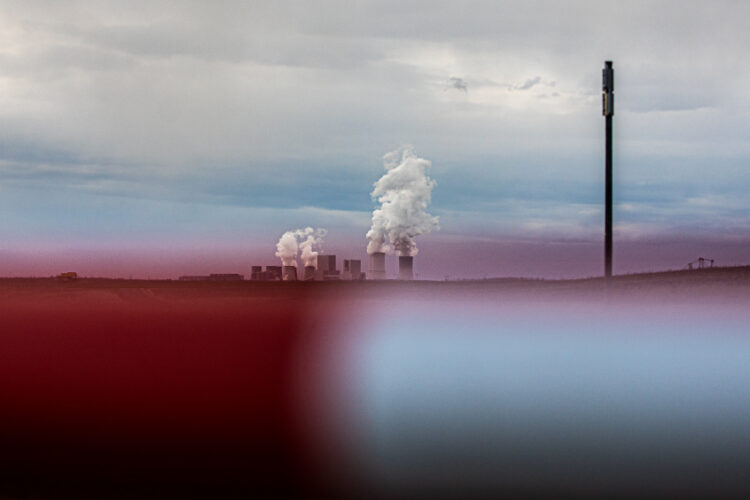Chinese authorities are requesting coal plants to significantly increase creation. The European Union is confronting a revolt over its yearning Green Deal on environment. US President Joe Biden is appealing to OPEC countries to help oil creation.
So much for the battle against the environment emergency it’s the energy emergency that is coming first. Also, it couldn’t have come at a more critical time.
In only three weeks, pioneers and arbitrators will meet for the COP26 worldwide environment talks in the Scottish city of Glasgow. Energy was working for putting an end date on coal and accelerating the worldwide change from environment adjusting petroleum products to renewables before the emergency hit.
Yet, a surge back to petroleum products is stressing a few specialists that this second in time could dial back that progress, especially on the phaseout of coal, presently in nearer reach than at some other time ever.
“The worry with China’s power crunch is that it appears to be strengthening the argument of pro-coal interests there that the transition to renewables is happening too fast,” said Christine Shearer, Global Energy Monitor’s program chief for coal, which tracks the utilization of petroleum products all throughout the planet.
With winter quick drawing closer and the worldwide economy bouncing back from the Covid-19 pandemic quicker than the world had arranged for, legislatures are being compelled to go after wellsprings of energy that are promptly accessible. The foundation that exists to tackle energy from renewables like breeze and sun powered just isn’t sufficient to fulfill need.
“The worry with China’s power crunch is that it appears to be strengthening the argument of pro-coal interests there that the transition to renewables is happening too fast,” said Lisa Fischer, program pioneer at the European environment think tank E3G.
Tossing more cash at petroleum products isn’t an answer, she said, and some transient arrangements are problematic to longer-term feasible objectives.
A superior reaction would be to “turbocharge” financing for conveying inexhaustible and energy productivity programs, including getting foundation projects that were hampered by the pandemic, off the ground.
Furthermore, there involves the polarity of the emergency the world can all things considered “turbocharge” endeavors in renewables, or dial it back, and incline more on non-renewable energy sources, as is going on at this point.
An international wreck
There are a few purposes behind the energy mash, past the bounce back from the pandemic. Force from renewables has been beneath assumptions in the UK and mainland Europe, the late spring was less blustery than expected, so wind power under conveyed. In China, lower precipitation implied less energy from the country’s hydropower plants.
What’s more, Russia has been blamed for easing back gas supplies to Europe to support a quicker endorsement measure for its Nord Stream 2 gas pipeline that runs under the Baltic Sea to Germany.
An European split
China isn’t the only one. Despite this emergency, European pioneers are flagging that non-renewable energy sources are difficult to stop.
Last month, the UK started up an old coal plant to satisfy power needs. Also, a few nations in the European Union are thinking about keeping coal and oil-consuming plants open past their conclusion dates to stay away from comparable force cuts.
It’s a hit to the significant additions Europe detailed last year, when renewables produced more power than petroleum derivatives interestingly. In 2020, 38% of power was conveyed by environmentally friendly power, contrasted with 37% by non-renewable energy sources.
It has likewise caused a break in the EU parliament, where the environment intersection is quite obvious. Despite a dire emergency, a few chiefs say without a powerful transient activity intend to counter purchasers’ expanding energy charges, the EU’s Green Deal will lose support.
A thump on impact in the US
In the US, an emergency is preparing around taking off fuel costs, an issue that is attached to the more extensive energy issue. A few nations that are attempting to get sufficient flammable gas are going to oil to fill the hole in the force supply.
In August, Biden appealed to the OPEC+ a coalition of significant oil-delivering countries and their partners to increase worldwide oil creation after fuel costs took off, as an increment in supply would relax costs at the siphon.
Yet, a few specialists are confident that pioneers will pick the harder however really compensating way at COP26. While the UK has gotten back to coal temporarily, its division of Business for Business, Energy and Industrial Strategy on Thursday declared designs to completely decarbonize its power area 15 years sooner than it recently arranged.
“Going into the climate conference, the backdrop is demonstrating the extreme impacts of relying on fossil fuels to my mind, I think that could be enough to push some countries on the fence to really double down on renewables,” said Charles Moore, head of the European Program at the research organization Ember Climate.
“I think UK is a great example. The UK just came out and committed to fully decarbonize the electricity system by 2035,” he said.
Jamie knight started his career as a professor of Researcher and college, and quickly expanded his understanding of science and scientific discovery. He did this by writing News, Books,essays, and articles. They are editor to the newsletter for theinsurelife.com.
Disclaimer: The views, suggestions, and opinions expressed here are the sole responsibility of the experts. No The Insure Life journalist was involved in the writing and production of this article.

